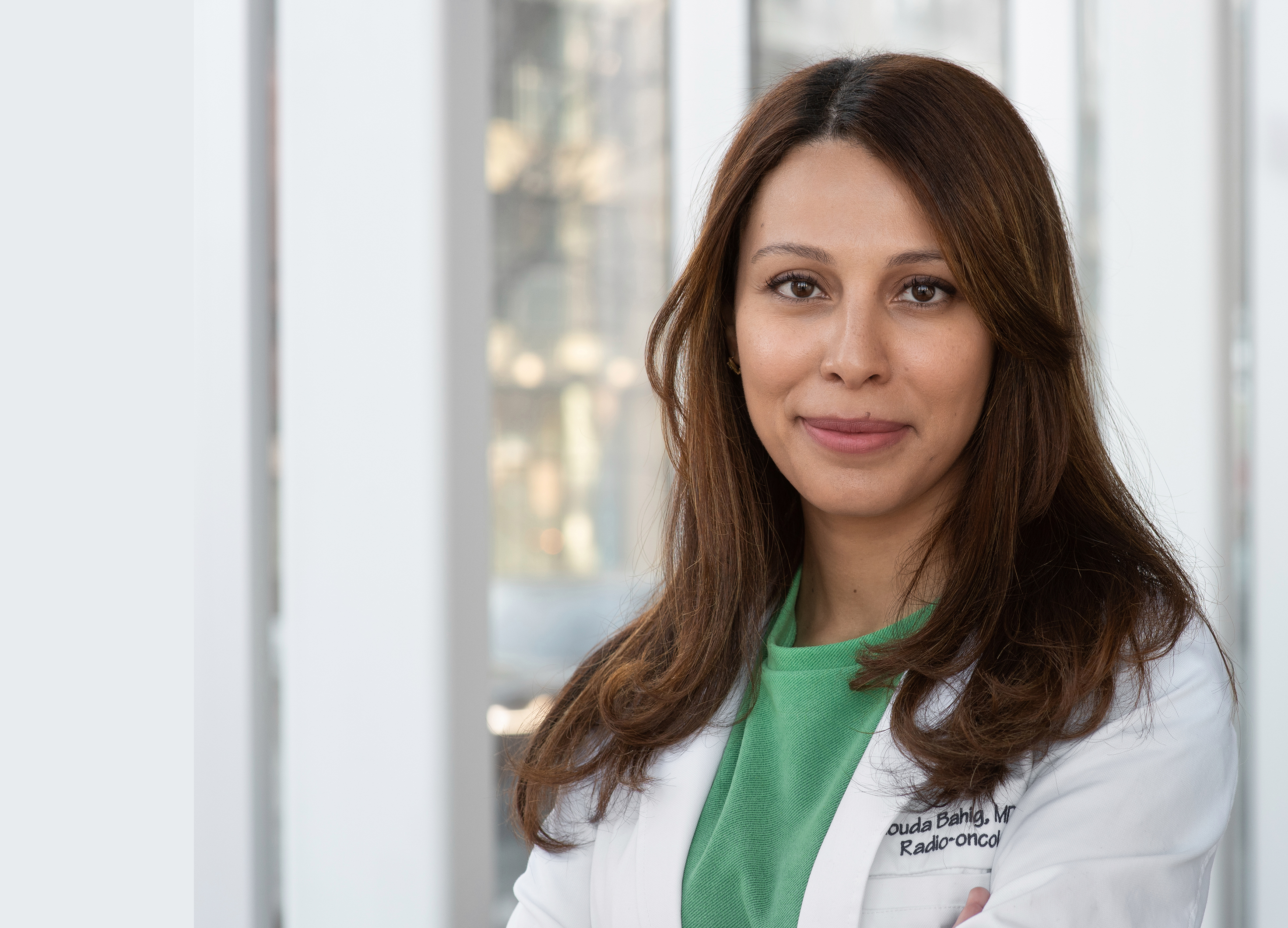)
Dr. Houda Bahig is keenly aware of the need to find better ways to personalize treatments for head and neck cancers. As a radiation oncologist at the Centre hospitalier de l'Université de Montréal, she treats patients with these cancers daily and knows that current methods for tailoring treatments are rudimentary at best, and that more needs to be done to improve outcomes and quality of life for her patients.
“Today, the personalization that exists is to look at the tumour type, location and stage to determine who gets surgery, radiation and/or systemic treatment” she says. “But besides that, everybody gets pretty much the same dose of radiation and chemotherapy.”
Because these tumours form in areas that we use to breath and speak, the side effects of treatments can be very harsh, severely affecting a patient’s quality of life. And while the current treatments do help cure some people, not all patients respond favourably to them. “This leaves us in a place where we may be overtreating some patients and undertreating others, but we have no way of knowing that beforehand,” says Dr. Bahig.
In this context, understanding who will respond to what treatments and tailoring therapies to improve quality of life and survival for patients is paramount. That is why she will use a new Marathon of Hope Cancer Centres Network Clinician-Scientist Award to lead a team of multidisciplinary scientists who will use artificial intelligence to analyze Big Data collected from patients with these cancers. Their goal is to create a tool to guide individually tailored treatment decisions, accelerating precision medicine for these patients.
“Today we have an enormous breadth of data from our patients, and we have the tools to analyze that data in new and exciting ways to predict treatment response,” says Dr. Bahig. “This project will put those tools together to improve the lives of cancer patients.
To achieve this, Dr. Bahig and her team will create a first-of-its-kind resource that combines imaging data, genomic and transcriptomic data, clinical data and pathomic data (features derived from cuts of the actual tumour specimen) from patients treated for head and neck cancer. She will then work with artificial intelligence specialists who are embedded in her research team to analyze the data (which is also a part of the MOHCCN Gold Cohort) to see if there are biomarkers that could be used to predict treatment response.
By the end of the project, Dr. Bahig’s team hopes to have a tool that is robust enough that it can be validated through a multi-centre clinical trial, moving it as close as possible to patients.
“The Marathon of Hope Cancer Centres Network’s funding will not only allow us to create the tool by supporting sequencing and data collection but will also allow us to find partners to validate it,” she says.
